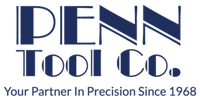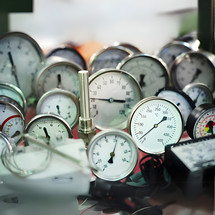24th Apr 2025
How to Select the Right Measuring Instruments for Industrial Applications
Summary
Choosing the appropriate measurement and control devices is critical for ensuring effective industrial operations.
From guaranteeing safety to streamlining operations, your chosen instruments must be dependable, robust, and adapted to your needs. However, choosing the right equipment may be difficult with many available alternatives.
This blog will help you make educated decisions on measurement and control tools for your industry.
Why Does Choosing the Right Instruments Matter?
Measurement and control tools are the foundation of industrial operations. Their measuring and control equipment is the foundation of industrial operations. Whether you operate in manufacturing, machining, construction, or any other area that requires precision, the accuracy and dependability of these instruments are critical to the success of your operations.
Their performance immediately and dramatically influences manufacturing quality, worker safety, and overall operational efficiency. Simply said, the quality of your measures determines all subsequent decisions. Poor instrument selection can cause problems that extend beyond minor inconveniences.
Serious Risks Involved in Miscalculations of Measuring Instruments
Inaccurate Measurements:
Faulty or inadequate measuring instruments can generate incorrect data, resulting in damaged goods, impaired structural integrity, and wasted raw materials. Even little variances might result in costly mistakes in businesses where accuracy is essential.
Frequent Downtime:
Using equipment that is not appropriate for your unique work or settings raises the risk of failures and malfunctions. This can lead to unanticipated repairs, operating halts, and missed deadlines.
Increased Costs
Inaccurate measurements and frequent downtime eventually increase operating expenses. You'll pay extra for repairs, replacements, and discarded materials, not to mention the hidden cost of losing client trust.
Choosing the correct measurement equipment from reputable providers ensures consistency, compliance with safety regulations, and smooth operation. Reliable tools invest in long-term efficiency and peace of mind, allowing you to reach production objectives confidently.
Factors to Consider When Selecting Instruments
Choosing the correct industrial instrument is crucial for assuring precision and dependability when measuring manufacturing, chemical processing, and power production process variables.
This section will explain what to consider when purchasing industrial instruments.
#1 Measuring Range and Accuracy
One of the most important considerations when selecting an industrial instrument is its measurement range and accuracy. Selecting an instrument that can precisely measure the range of process variables that must be monitored is critical. Furthermore, the instrument's precision must be adequate for the application since imperfections might result in costly mistakes or production concerns.
#2 Environmental Conditions
Industrial instruments are frequently exposed to challenging environmental conditions such as high temperatures, humidity, and corrosive materials. As a result, it's critical to select an instrument that can survive these circumstances and deliver accurate results in such settings. Some instruments, such as protective coatings or enclosures, may require extra protection to ensure durability in severe environments.
#3 Compatibility with Process
Another essential factor when choosing an industrial instrument is compatibility with the monitored process. Different methods may require different instrumentation, such as temperature sensors, pressure transmitters, or flow meters. Using an instrument appropriately suited to the process being monitored is critical, as employing unsuitable equipment might lead to erroneous data and significant safety risks.
#4 Maintenance and Calibration
Regular maintenance and calibration are required to ensure industrial devices' continuous accuracy and dependability. As a result, it's critical to pick an instrument that is simple to maintain and calibrate. Some devices may necessitate regular maintenance or calibration, but others may be intended to require little care.
#5 Cost
When choosing industrial equipment, cost is always an essential factor to consider. Balancing the instrument's cost with its features, accuracy, and dependability is critical. Choosing a less expensive instrument may save money in the short term. Still, it may lack the required precision and reliability for the application, resulting in more extraordinary long-term expenses owing to production difficulties or mistakes.
Avoiding Common Mistakes
- Overlooking Calibration Needs: Regular calibration guarantees long-term accuracy. Choose instruments that are simple to calibrate.
- Ignoring Maintenance Costs: Choose equipment with minimum maintenance needs to decrease downtime.
- Focusing Solely on Price: Invest in high-quality instruments to avoid frequent replacements and inefficiencies.
General Characteristics for Selection of Measuring Instruments
The qualities and features of measuring devices are defined by several particular terminologies, as seen below.
- Accuracy: The degree to which the measured dimension agrees with its absolute or actual magnitude is called accuracy.
- Amplification: The ratio of the measuring device's output value to its input value is known as amplification, which we call magnification.
- Calibration and maintenance: Calibrating a measuring device with a predetermined set of values to provide accurate process values within a reference standard is known as calibration. Analyze the instruments' calibration and maintenance requirements. For some applications, instruments need less maintenance and straightforward calibration processes could be better.
- Drift or Stability: The ability of an instrument to sustain its calibration over time is known as drift or stability.
Understanding Your Measurement Needs
Before considering the measuring options available, it's important to properly grasp your measurement requirements. Consider the type of measurements needed (dimensional, surface roughness, temperature), the desired degree of accuracy, and the required resolution or sensitivity levels.
You might also want to consider the expected workload, throughput needs, and any regulatory compliance criteria that must be satisfied. Remember, establishing your criteria beforehand may help you narrow down your options more effectively.
Here are a few things you should understand about measurement needs:
Research and Compare Brands and Models
Once you clearly understand your measuring requirements, you can begin studying the various brands and models on the market. Seek recognized manufacturers who produce high-quality metrology equipment. Look for feedback from other users or industry professionals with firsthand experience with these gadgets.
Consider Factors Related to Accuracy and Precision
Accuracy is crucial when selecting metrology equipment. Look for devices with excellent accuracy levels that meet or surpass your specifications. Remember that some measuring equipment may require frequent calibration by recognized laboratories to retain its accuracy over time.
Precision is also necessary if you want consistent findings across several measurements or wish to identify even minor deviations correctly.
Evaluate Ease of Use
Another important consideration while selecting metrology equipment is its usability. Consider how easy the device's interface is for operators who will use it frequently. Training new users should be simple and rapid, allowing as little downtime as possible while adjusting to the latest equipment.
Once you clearly understand your measurement needs, it's time to start researching different brands and models available in the market. Connect with established manufacturers, and look for reviews from other users or industry professionals with hands-on experience with these devices.
Key Takeaways
Choosing the appropriate measurement and control equipment requires careful analysis of your industry's requirements, operating environment, and budget. Concentrating on accuracy, durability, and compliance may improve performance and assure consistent outcomes.
How Penn Tool Co. Controls Can Help
Penn Tool Co. specializes in supplying precise instruments adapted to various industries. With decades of experience, we assist customers in selecting the best solutions for their specific problems.
Are you ready to locate the best instruments for your needs? Contact us today and let our specialists help you make the right decisions for your industry.

